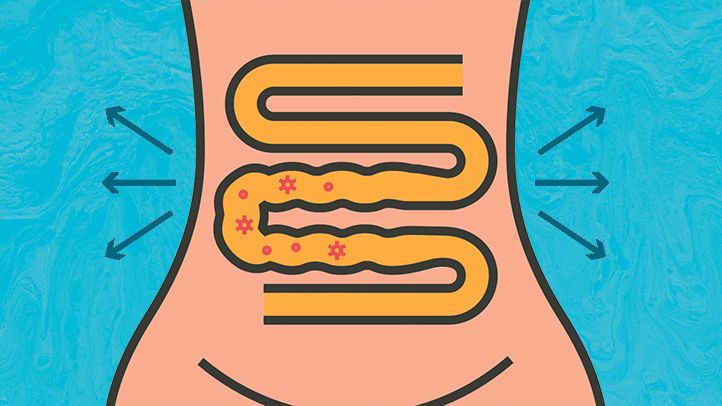Loose bowel movements, or diarrhea, are common and often resolve on their own without the need for medical intervention. However, in some cases, it may indicate a more serious underlying condition that requires medical attention.
Knowing when to worry about loose bowel movements can help you take appropriate steps toward better health. In this article, we will explore various aspects of diarrhea, when it becomes a concern, and the role of medications like Nizonide 500mg in treating certain causes of loose stools.
Understanding Loose Bowel Movements
Loose bowel movements refer to stools that are more watery and less formed than usual. It is often accompanied by an increased frequency of bowel movements, cramping, bloating, and a sense of urgency to defecate. Occasional diarrhea is typically not a cause for alarm and can be triggered by several benign factors, such as
Dietary changes
Consuming foods high in fiber, fatty or greasy foods, or artificial sweeteners may lead to diarrhea.
Infections
Bacterial, viral, or parasitic infections can cause short-term diarrhea.
Food intolerances
Lactose intolerance or sensitivity to gluten may result in loose stools. Most cases of diarrhea last for a short period, typically less than two days, and resolve without treatment. However, persistent, chronic, or severe diarrhea warrants concern.
When to Worry About Loose Bowel Movements
Though diarrhea is usually short-lived, certain signs and symptoms suggest a more serious issue. You should seek medical attention if you experience any of the following
Persistent Diarrhea
If loose bowel movements last more than two days for adults or more than 24 hours for children, it could be a sign of an underlying infection or a more serious condition, such as inflammatory bowel disease (IBD), celiac disease, or irritable bowel syndrome (IBS).
Severe Dehydration
Diarrhea can lead to significant fluid loss, causing dehydration. Signs of dehydration include extreme thirst, dry mouth, decreased urination, dark-colored urine, dizziness, and fatigue. If dehydration becomes severe, it can be life-threatening and may require urgent rehydration through intravenous fluids.
Bloody or Black Stools
Blood in the stool is never a normal occurrence and could indicate gastrointestinal bleeding. Bright red blood may suggest a problem in the lower GI tract, such as hemorrhoids or colorectal cancer, while black, tarry stools could be a sign of bleeding in the upper GI tract, possibly due to ulcers or gastritis.
Severe Abdominal Pain or Cramping
While mild cramping is common with diarrhea, severe or persistent pain may indicate a more serious condition, such as appendicitis, bowel obstruction, or an infection requiring medical treatment.
High Fever
A fever above 101°F (38.3°C) along with diarrhea suggests an infection, especially if accompanied by chills, sweating, or body aches. Severe bacterial infections, such as salmonella or E. coli, can cause fever and require prompt medical evaluation.
Unintentional Weight Loss
If diarrhea is accompanied by significant, unexplained weight loss, it could be a sign of malabsorption or a chronic condition such as Crohn’s disease, celiac disease, or certain cancers. Malabsorption occurs when the body is unable to absorb nutrients properly, leading to deficiencies and weight loss.
Diarrhea After Traveling
Travelers’ diarrhea, often caused by consuming contaminated food or water, can be mild or severe. If you have recently traveled to areas with poor sanitation, persistent diarrhea could indicate an infection such as giardiasis or amebiasis, which may require specific medications like nizonide 500mg.
Weakened Immune System
Individuals with weakened immune systems, such as those with HIV/AIDS, cancer patients undergoing chemotherapy, or organ transplant recipients, are at a higher risk of developing severe infections. Diarrhea in such individuals should be promptly evaluated by a healthcare provider.
Common Causes of Persistent or Severe Diarrhea
When diarrhea persists beyond a few days or is accompanied by the concerning symptoms mentioned above, it is essential to investigate the underlying cause. Some of the common causes include:
Infections
Bacterial infections (e.g., Salmonella, Campylobacter), viral infections (e.g., Norovirus, Rotavirus), and parasitic infections (e.g., Giardia, Entamoeba histolytica) can cause severe diarrhea. Nizonide 500mg, which contains nitazoxanide, is an antiparasitic medication often prescribed for the treatment of parasitic infections like giardiasis and amebiasis.
Irritable Bowel Syndrome (IBS)
IBS is a common functional gastrointestinal disorder characterized by alternating episodes of diarrhea and constipation. Stress, diet, and certain medications can trigger IBS symptoms.
Inflammatory Bowel Disease (IBD)
Conditions like Crohn’s disease and ulcerative colitis cause chronic inflammation in the digestive tract, leading to diarrhea, abdominal pain, and other symptoms. These conditions require long-term management and can lead to complications if left untreated.
Celiac Disease
Celiac disease is an autoimmune condition where the ingestion of gluten (a protein found in wheat, barley, and rye) damages the lining of the small intestine. This leads to malabsorption, diarrhea, bloating, and weight loss.
Medication Side Effects
Certain medications, such as antibiotics, laxatives, and chemotherapy drugs, can cause diarrhea as a side effect. If you suspect that a medication is causing your diarrhea, consult your healthcare provider.
Nizonide 500mg and Its Role in Treating Diarrhea
Nizonide 500mg is a brand name for the drug nitazoxanide, an antiparasitic agent used to treat a variety of protozoal infections. Nitazoxanide works by interfering with the energy production of the parasite, leading to its death. This medication is commonly prescribed for conditions such as
Giardiasis
An infection caused by the Giardia parasite, which can be contracted through contaminated water or food. Symptoms include diarrhea, abdominal cramps, and nausea.
Amebiasis
Caused by the parasite Entamoeba histolytica, amebiasis is another parasitic infection that can lead to diarrhea, often with blood and mucus in the stool.
Cryptosporidiosis
A parasitic infection that can cause watery diarrhea, particularly in individuals with weakened immune systems. Cryptosporidiosis is often contracted through contaminated water.
Nizonide 500mg is usually prescribed for a short course, often 3 to 5 days, depending on the severity of the infection. It is important to take the medication exactly as prescribed and complete the full course, even if symptoms improve before finishing the medication.
When to Seek Medical Attention
If you have been experiencing diarrhea for more than two days or if any of the warning signs mentioned above are present, it is crucial to consult a healthcare provider. Immediate medical attention is necessary if you experience severe dehydration, persistent vomiting, blood in the stool, or high fever.
Your doctor may recommend stool tests, blood tests, or imaging studies to identify the cause of your diarrhea. In cases of bacterial or parasitic infections, antibiotics or antiparasitic medications like Nizonide 500mg may be prescribed to address the root cause of the diarrhea.
Conclusion
While loose bowel movements are often a temporary inconvenience, certain signs and symptoms should not be ignored. If diarrhea persists, is accompanied by other concerning symptoms like dehydration, fever, or blood in the stool, it is important to seek medical attention. Conditions like infections, IBS, IBD, and celiac disease can all cause chronic diarrhea and require proper diagnosis and treatment.
In the case of parasitic infections, Nizonide 500mg can be an effective treatment. Always consult a healthcare provider for guidance on the appropriate treatment, especially if you suspect that an infection is causing your loose bowel movements.

